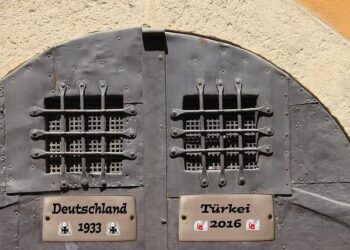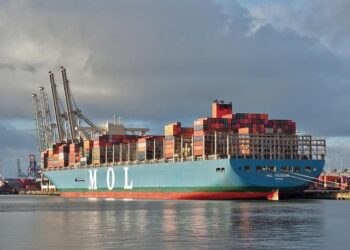TĂĽrkiye is set to further enhance its transportation infrastructure with ambitious plans to expand air, rail, and road capacities, according to recent statements highlighted by HĂĽrriyet Daily News. As the country aims to bolster connectivity and support economic growth, government officials emphasized ongoing and upcoming projects designed to improve mobility and logistics across the nation. This strategic push underscores TĂĽrkiye’s commitment to modernizing its transport sector and meeting increasing domestic and international demands.
TĂĽrkiye Unveils Ambitious Plans to Enhance National Transportation Infrastructure
TĂĽrkiye is embarking on a sweeping modernization drive targeting its transportation network, aiming to bolster connectivity and economic growth across the nation. The government has allocated significant funding to expand capacity across key sectors, including air travel, railroads, and roadways. This strategic initiative prioritizes the construction of new airports, the extension of high-speed rail lines, and the widening of critical highways to reduce congestion and improve logistics efficiency.
Key developments highlight:
- Airport expansions: New terminals and runways to increase passenger and cargo handling capacity.
- Rail infrastructure: Extension of high-speed rail routes linking major urban centers with peripheral regions.
- Road networks: Upgrading highways to promote safer and faster vehicular movement.
| Transport Mode | Planned Capacity Increase | Completion Target Year |
|---|---|---|
| Air | 30% passenger growth | 2028 |
| Rail | 50% network extension | 2030 |
| Road | 40% lane expansion | 2027 |
Boosting Connectivity and Economic Growth Through Expanded Air, Rail, and Road Networks
The Turkish government is intensifying efforts to enhance national connectivity by investing heavily in expanding its air, rail, and road infrastructure. These upgrades are designed to streamline transportation networks, reduce transit times, and support the increasing demand from both domestic and international travelers. Airports across the country are set to benefit from capacity expansions, while new high-speed rail lines and upgraded highways promise to create seamless links between major economic hubs, fostering regional integration and improving accessibility.
Expected to generate significant economic ripple effects, these infrastructure projects will boost trade, tourism, and employment opportunities. Key highlights include:
- Air travel: Expansion of international airports with new terminals and runways.
- Rail network: Addition of over 1,000 km of high-speed rail connecting metropolitan centers.
- Road improvements: Upgrading highways and building new express lanes to ease congestion.
| Transport Mode | Planned Additions (2024-2028) | Expected Economic Impact |
|---|---|---|
| Air | 3 new terminals, 4 runways | Boost tourism by 15% |
| Rail | 1,200 km high-speed lines | Reduce travel time by 30% |
| Road | 1,500 km expressways | Cut logistics costs by 20% |
Experts Recommend Strategic Investments to Sustain Long-Term Mobility and Competitiveness
Industry leaders emphasize the importance of targeted infrastructure investments to ensure TĂĽrkiye’s mobility networks meet future demands. With increasing urbanization and economic growth fueling transportation needs, experts argue that boosting capacity across air, rail, and road sectors is crucial to maintaining the country’s competitive edge in both regional and global markets. Strategic fund allocation towards modernizing existing facilities and integrating emerging technologies can create a resilient transportation ecosystem capable of accommodating rising passenger and freight volumes efficiently.
A recent analysis highlights key areas for investment prioritization:
- Expanding airport terminals to manage higher international traffic.
- Upgrading rail infrastructure with high-speed and freight corridors to reduce transit times.
- Enhancing road networks through smart traffic management and sustainable design initiatives.
The following table summarizes projected benefits tied to these investments:
| Sector | Projected Capacity Increase | Expected Impact |
|---|---|---|
| Air Transport | 30% | Boost in international connectivity |
| Railways | 40% | Reduced freight costs & delivery times |
| Roadways | 25% | Lower congestion & enhanced safety |
To Conclude
As TĂĽrkiye moves forward with its ambitious infrastructure plans, the continued expansion of air, rail, and road capacities is set to play a pivotal role in enhancing connectivity and supporting economic growth. With strategic investments and a focus on modernizing transportation networks, the country aims to meet rising demand and bolster its position as a key regional hub. Observers will be closely watching how these developments unfold and their impact on TĂĽrkiye’s broader economic trajectory in the years ahead.
















